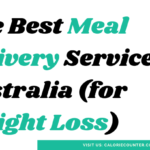In the last post, we described how hard it is to change a bad habit. We made the point that if it is particularly difficult for you to change habits, the reason is probably because your character is too strong.
Character is “who you are” and who you are is made up of a combination of genetic predispositions and conscious and subconscious choices based on personal experience and expectation.
Strong Character?
People with strong characters find it hard to change because something deep inside them knows that change is not always a good thing. Sometimes, a refusal or an apparent inability to change is seen as being weak-willed or stubborn.
“Why is she so fat? She should stop eating those greasy pies all the time! Can’t help herself…”
“Can’t he get out of bed earlier? Why does he always have to leave everything to the last minute?”
“I keep telling her to come with me when I go running, but she is so stubborn! Always making excuses…”
Our last post explained that it is possible for people like the ones described above to use their “stubbornness”, “laziness” and “low willpower” like a judo master using an opponent’s own strength against him. After all, a person who stubbornly takes her morning run every day, come rain or shine, is hardly ever called “stubborn” for doing so. No, she is resolutely fit.
Laziness? Maybe Not
A person who is always too lazy and ambivalent to find and sample all of the different restaurants in town is never called “lazy”. That person is normal, prudent and sensible.
Nobody says that the man who just has to eat a green salad when everyone else is tucking into pasta is a helpless food fiend. That guy has strong will-power.
If you think about it, there is very little difference between the person who stubbornly keeps a good habit and the person who stubbornly keeps a bad habit. One nurtures a good habit, the other nurtures a bad habit but they are both nurturing a habit.
If it is hard for you to change a bad habit, it will be hard for you to change a good habit once you establish it. This is how you can establish it:
Choose one
Start at the beginning by zeroing in on one bad habit that needs changing. Don’t make a list of all of your bad habits then choose one. Just choose one.
It might not be your worst habit, it might not be the hardest one to break, and it might not even be all that bad. Then again, it might be the worst, most resilient sucker you have.
For whatever reason you want to give yourself, just pick one.
The process of choosing one and making a decision to break it is half the war. Making the choice is a major battle, which you win by default. You’re already off to a winning start!
For the purposes of this post, to illustrate the process, let’s propose that the habit you want to break is Snacking Between Meals. It is a common bad habit and the cause of many an overweight body.
Name your enemy
Next, you need to define the habit and give it a special name. When you make the effort of actually thinking about the habit and giving it a name in your head, you will be better able to break it. That is because a special compartment opens up in your brain (figuratively speaking) to remember the name. It is easier to think of something and all that it involves when you can name it and visualise it as an object or personality or life-form. It becomes “realer” as a problem to be solved.
Naming the habit: Let’s name the Snacking Between Meals habit the “S.B.M.” habit. Call it SBM. We are going to break SBM.
The name you choose does not have to be an acronym, but it should be distinctive enough that you would need to explain it to somebody who wanted to know what you’re on about.
Defining SBM: let’s decide that SBM means eating or drinking anything that is not water or tea or coffee (low sugar/cream) when it is not breakfast, lunch, afternoon tea, or dinner time.
Okay, now that we have named and defined the bad habit to be broken, we can move on to the nitty-gritty.
Recognise the need when it arises.
We act (perform our habits) when a need to act arises. We wake up when we need to wake up. Eat when we need to eat. Play when we need to play.
Think about the last time you performed the bad habit and try to remember why you did it. With SBM, perhaps it was yesterday about an hour after dinner when you were settled in a comfortable chair watching your favourite show. It was warm and cosy, the show was excellent, the house was peaceful and everything was great until you got out of your chair to help yourself to a glass of chocolate milk and Nutella sandwich. SBM strikes again!
What was the need in that case? Perhaps it was the need to
- Feel a sense of completeness (as in you wanted the satisfaction of a full belly in addition to the satisfaction of enjoying your entertainment and creature comforts)
- Or maybe you were hungry
- Or someone else was having a snack and you wanted to accompany your fellow,
- Or maybe you felt the need to stick to a normal, comfortable routine.
Whatever the need, try to pin it down and look out for it. Why? Because when it arises you need to be ready to battle. SBM is coming at you, guns blazing, shrieking an ear-splitting war-cry.
But don’t worry, you are going to be ready and armed.
Act on the need quickly and forcefully.
By substituting your habitual action with an alternative action which satisfies the need. Do not just try to ignore the need and soldier on without doing anything. That’s called willpower and for reasons already explained that won’t work for you. You are probably too strong for willpower.
Thinking about the SBM example, let’s think of actions which work to deliver you from the need:
- Get that full-belly sensation by drinking a mug of tea
- Feeling hungry? Drink something warm and engage your brain in solving a puzzle, preferably one with bright colours and moving parts. Something like a mobile phone game works really well. The hunger sensation will subside without you having to fixate on it. If you feel hungry, do not try to Will your way out of not reaching for the cookie jar! Act on the sensation by giving your stomach sensors something to do (drinking a warm low-calorie drink) and diverting your brain to something else (an engaging puzzle, movie, book, game, conversation).
- Want to accompany someone else who is snacking? By all means accompany them, but don’t join in them in eating. Use the time that you would ordinarily use in chewing to think up and introduce new topics of conversation. That way, you will enrich your relationship with the person by opening new avenues to share ideas and insights.
- Feeling a need to stick to a normal, comfortable routine? Meet this need by removing the ability to keep that “normal” routine. In our example, this would mean not buying Nutella, or chocolate milk. Instead, buy some interesting teas or coffees and make those instead. Make that the new “normal” and the need to stick to a comfortable routine will be met.
Make sure that the need has been met before you move onto the next thing. Crowd the old habit out by suffocating it before it takes its first breath. Don’t leave a crack of time open for the old habit to squeeze back in. Don’t give it a chance. Don’t even fight the battle. Willpower won’t help you day in and day out!
Get rewarded immediately.
If you feel like a deserving winner each time you beat the old, bad habit you will want to keep beating it. If you feel like an underserving loser each time you practise the new, good habit you will soon find a reason not to keep feeling that way.
If you go to bed feeling miserable because you did not SBM, it will be very hard to beat SBM tomorrow. If you go to bed feeling great because you did beat SBM, your chances of victory tomorrow are very good.
Satisfying the need might seem like a reward in itself, but remember that we want to crush the bad habit, not just evade it. By receiving a reward for winning the battle, we feel good for more than one reason at the exact time of our victory. This double-whammy is just good for you and will help to prepare you for the next onslaught.
The best reward might be a literal or mental pat on the back, given to yourself by yourself. Think of yourself as a victor, and you will reinforce the positive cycle. You will become better and better at winning the battles and hence the war.
If mental rewards are not your thing, why not try one of these 101 Ways to Reward Yourself? Or just make the rewards up as you go!
It’s a game
If all of this talk about “battles” and “wars” seems a bit over the top, just think about the process as a game. A game that can be re-started any time, is fun to play, and will help you even if you do not win all the time.









